Volume 5, Issue 53: Whoever Did This
"You know where I was when he was shot? I was getting a haircut."
Here is a button where you can subscribe to this newsletter now, if you have not previously done so. I do hope that you enjoy it.
One of my sons asked me about September 11 a while back. I’d always imagined that would happen, even back then, a full decade before I became a parent, but I did think it would be more dramatic. I’d always assumed the fact that I was in New York City on September 11 would be a central biographical detail of my life, the rest of my life, just like it would be for everybody else who was there at the time; I figured it would come up constantly. It was, after all, surely going to be the most important moment in American history, and it was one I was present for: Imagine being in Oahu during Pearl Harbor, or being in East Berlin when the wall fell, and not having it be a central biographical detail of your life. But it hasn’t turned out that way. So much has happened in the last 23-plus years, people who weren’t around for it have no context for it and the rest of us have been so swept up in all the dramatic changes since that you can’t stop your head from spinning. The world’s constantly on fire, people are terrified of everything, and we’ve gotten so removed from that day that you’ve even had young people—very, very stupid young people, which is the right, even the obligation, of the young—even sympathizing with Osama bin Laden. In 2025, I never get asked about September 11. It just never comes up.
So when my son asked about it—mostly in passing, like he was asking what video games were like when I was a kid—I thought long and hard about the proper response. I figured I probably shouldn’t say that everybody I knew drank themselves into oblivion for about a year afterwards, though everybody I knew did. The more I reflected on it, one thing kept bubbling up:
"It felt like there was going to be another attack tomorrow. And another one after that.” Yes: That is exactly what it felt like.
Three weeks after September 11, a man named Robert Stevens, a photo editor for American Media, the publisher that produced the National Enquirer, opened a package at his office in Boca Raton, Florida. This package contained a white powder that turned out to be anthrax. Stevens fell ill and died three days later, becoming the first of five people to be killed from opening letters laced with anthrax, including a two postal workers in Washington, D.C. and a hospital worker in New York City.
Another person who was a hospital worker in New York City at the time: Me. I was working as an office assistant to an oncologist at Mt. Sinai Medical Center, and I remember, in the days after, opening every letter through gritted teeth and clenched fists. (Did you know that when you rip open a FedEx package, there’s a visible mist of dust released into the air? I sure do!) But as shocking and surreal as the anthrax attacks were—the first time anyone had died of anthrax in 25 years—they almost felt like a logical progression at the time. They were the next step in what we all presumed would be a series of attacks, attacks that would last for years, maybe the rest of our lives. No one was happy about this, of course, but it was also sort of accepted as the grim reality, one you had no choice but to trudge forward through. Years later, as a way to contrast the way our country reacted to the Boston Marathon bombing (essentially shutting down the entire city of Boston for nearly a week to search for a teenager in a boat), an NPR writer described how matter of factly Israelis responded to terrorism:
We were consistently amazed at how quickly Israelis returned to places that had been bombed. The police, the rescue teams and the cleanup crews restored a bomb site to an outward semblance of normality within hours of an attack. Debris was swept out. Hoses washed away blood from the sidewalk. Shattered windows were replaced. The yellow police tape came down. The next day, Israelis placed flowers and candles at the scene. By the time those flowers wilted, the street tended to be as busy as ever."
For Israelis, combating terror is not just a security question. It's a social, cultural and psychological issue and the whole country is required to play its role. It's often measured in small deeds, like going back to a favorite cafe after an attack.
We assumed it would be like that. The question is not whether there would be more attacks. The question was how we would respond to them when they inevitably happened. To stick together, to go about our lives, to use, as the Brits say, “blitz spirit,” was not just a way to move forward emotionally: It was resilient, it was patriotic, it was useful. A coffee shop is bombed in the morning, it’s open for lunch in the afternoon. To do otherwise was not just living in fear; it was letting the terrorists win. The American way of life—and all the good and bad that came with that—was seen as something worth saving, worth hanging on to, worth fighting for. They wanted us to be scared all the time. To be resolute, and defiant, was to refuse.
But implicit in this understanding—key to the whole fight, if you can call it that—was that the threat was external. There were bad guys trying to get us: We just had to defeat the bad guys. This line of thinking turned out to be disastrous—it’s what led us into Afghanistan and Iraq—but it was simple, and linear, and logical, and it even had what could be considered a noble overarching goal: It kept Americans together. And we were together. One of my most vivid memories of the evening of September 11 is members of Congress meeting on the steps of the Capitol to sing “God Bless America,” together, sometimes hand in hand.
It felt unifying in that moment. It felt like we could band together, and, through will and a new, Americanized blitz spirit, that we could win. That we could get back to what we were. Or at least what we thought we were.
I watch that footage today, and I want to feel nostalgia for that moment, to imagine a time when the country could experience a collective trauma as one rather than immediately starting fights with one another. We have experienced many tragedies since September 11, and none of them, fair to say, have featured bipartisan members of Congress standing and signing together. Wouldn’t it be nice to be like that again? But then I watch that clip, and I see the first person talking was Speaker of the House Dennis Hastert who, 10 years later, was revealed to be a serial child molestor. We always remember the past better than it was.
And the one thing we held onto then—the one thing we thought it was so important to band together for—was that these attacks were coming from outside. That someone was trying to destroy us.
Two decades later, though: We know better. And we have internalized it to the point that we don’t even think about it anymore.
Early in the morning on New Years Day this week, 14 people were killed and dozens more were injured when a man drove his truck into crowded Bourbon Street in New Orleans. Hours later, a man drove a Cybertruck to the front door of the Trump Hotel in Las Vegas and blew it (and himself) up. These were terrifying incidents, and ones that hit close to home, including here in Athens; Georgia was scheduled to play in the Sugar Bowl the next day, and, as you’d expect, we have many friends who were staying in that specific area that night. (Though most of them are too old to still be out at 3 a.m.)
But when you learned about the attacks, what was your first thought about the perpetrators? Did you think they were Al Qaeda? ISIS? Some sort of external aggressor, some foreign agent attempting to take down the American way of life?
Or did you think it was an American? I did. And I bet you did too.
And we were, of course, right.
When I think back about what has changed the most about how we react to tragic events in the 23-plus years since September 11, it’s that. Then, it felt like we were all trying to get through it together, that there was some sort of linear determinism, a thing we were all on the same side to fight against. It felt like we—whatever “we” meant—could, in fact, win.
Now, though: The calls are coming from inside the house. We’re doing this to ourselves. The enemy isn’t an exterior force. It’s that guy on social media, or that guy you knew from high school, or your neighbor, or even someone from your family. The bad guys are everywhere; they could be anyone. Some people even think that bad guy may be you.
That’s what we’ve defaulted to. We won’t sing on the steps of the Capitol again; we’d be too busy screaming to drown out the person next to us. Exterior forces do not need to attack us. They can just sit back and watch us attack ourselves—over and over and over and over.
I don’t know how this stops. But then again: I’m kidding myself if I think this is even all that new. After all, those anthrax attacks? The ones I, and everyone else, were convinced were the next wave of Al-Qaeda attacks? Well: Those turned out to be done by an American too. We have always wanted to find a common enemy. It is, after all, much easier than looking at ourselves. Which is another reason this keeps happening. And, days into a new year with ominous signs wherever you look, why it shows no signs of stopping.
IN OTHER, HAPPIER NEWS, MY FRIEND IS 50
A happy birthday to Tim Grierson, who I cannot believe is 50 years old today. I met Tim at a “gifted” class in the sixth grade, and all I really knew about him was that he was a Cardinals fan, which was more than enough to instantly make him my friend. We ended up becoming each other’s gateway drugs to everything, from movies to music to art to history to politics to an understanding that there was a world outside of Mattoon, Illinois that we both very much wanted to go explore. I have no idea what kind of person I would have become had I not met Tim, but it certainly would not be this one. He has been my closest friend for nearly 40 years now, and if nobody ever listened to our Grierson & Leitch movie podcast, it would still be worth it just to have an excuse to talk to Tim every week; there remains, all these years later, a language than only Grierson and I speak.
Happy birthday, Tim. I know you will be mad that I wrote this in my newsletter, but you deserve to be celebrated. In the words of David Letterman’s Christmas tree, “you suck, Grierson, you suck.”
Here is a numerical breakdown of all the things I wrote this week, in order of what I believe to be their quality.
My Annual Baseball Obits Piece, MLB.com. We actually lost a whole bunch of great baseball people this year.
What Teams Are Most Affected by the Corbin Burnes’ Deal? MLB.com. Had to sneak in a little writing over the break.
Which MLB Players Will Define 2025? MLB.com. Some guesses.
Illini Power Rankings, Illini Board. For Illini basketball obsessives only, but if you are one, this is for you. (And for me. Mostly me.) Also, the Illini obliterated most of the entries on this list by destroying Oregon on Thursday night.
PODCASTS
Grierson & Leitch, we’re not back until mid-January, but you should listen to Dorkfest again.
Waitin’ Since Last Saturday, we previewed the Georgia-Notre Dame game, and then recapped it.
Morning Lineup, I did Friday’s show, the big, hey, everybody’s back! show.
LONG STORY YOU SHOULD READ THIS MORNING … OF THE WEEK
“Americans Need to Party More,” Ellen Cushing, The Atlantic. I agree! I think I may try to fix this with my own 50th birthday party later this year. (Much later this year!)
ONGOING LETTER-WRITING PROJECT!
This is your reminder that if you write me a letter and put it in the mail, I will respond to it with a letter of my own, and send that letter right to you! It really happens! Hundreds of satisfied customers! (Got some more of these out this week, stand by.)
Write me at:
Will Leitch
P.O. Box 48
Athens GA 30603
CURRENTLY LISTENING TO
“One More Hour,” Sleater-Kinney. I have a 10K next weekend and a half-marathon at the end of the month, so we’re firing up the running playlists again. This is a staple of each of them.
Remember to listen to The Official Will Leitch Newsletter Spotify Playlist, featuring every song ever mentioned in this section. Let this drive your listening, not the algorithm!
Also, there is an Official The Time Has Come Spotify Playlist.
I don’t know if the world is happy right now, but Illinois basketball sure is, and that my just have to suffice.
Have a great weekend, all.
Best,
Will

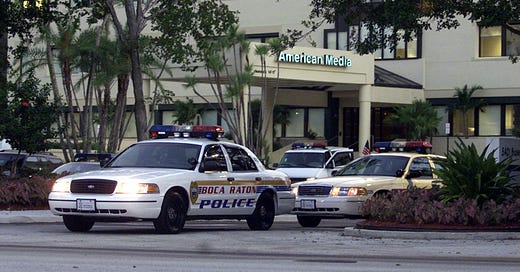


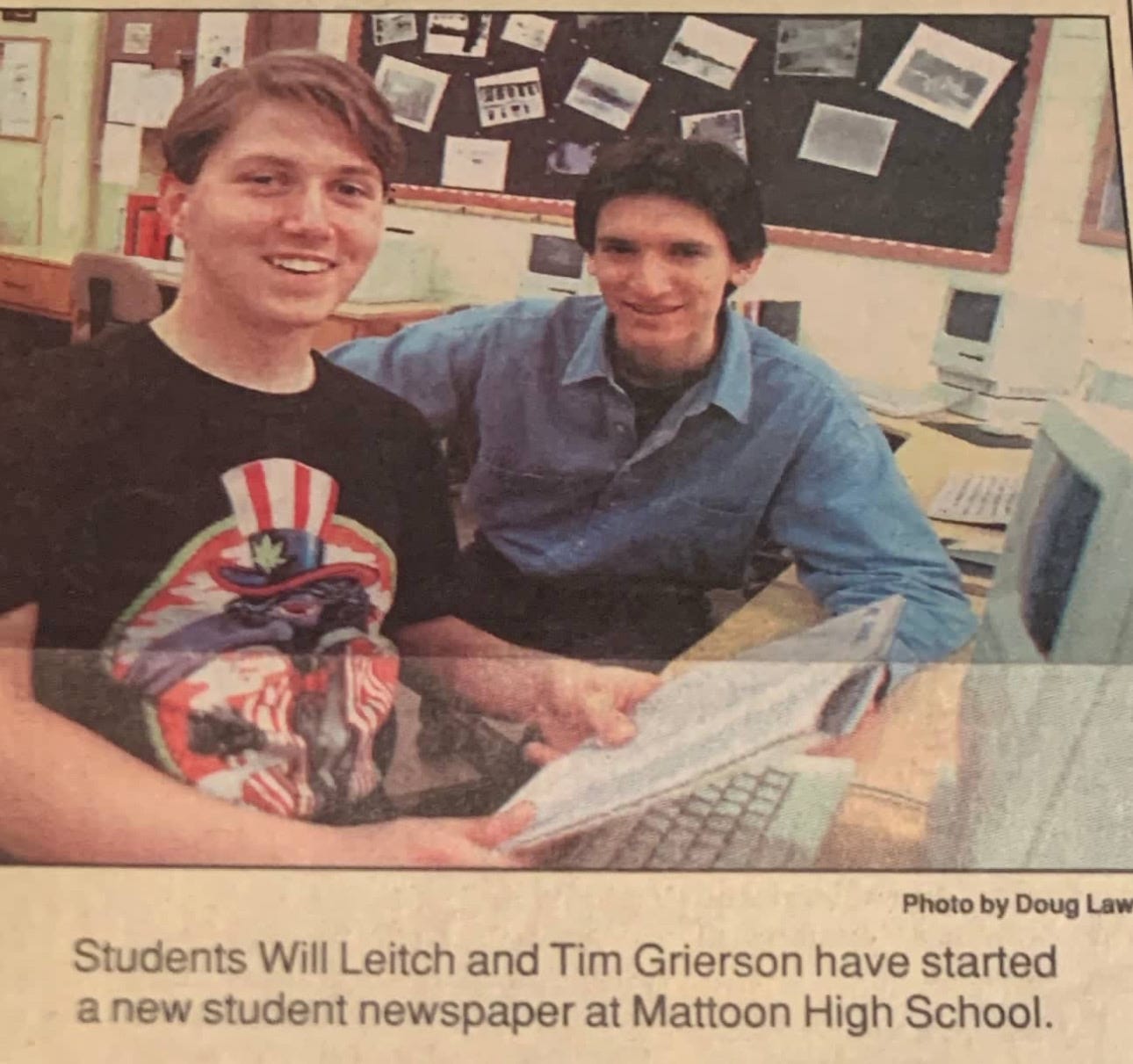
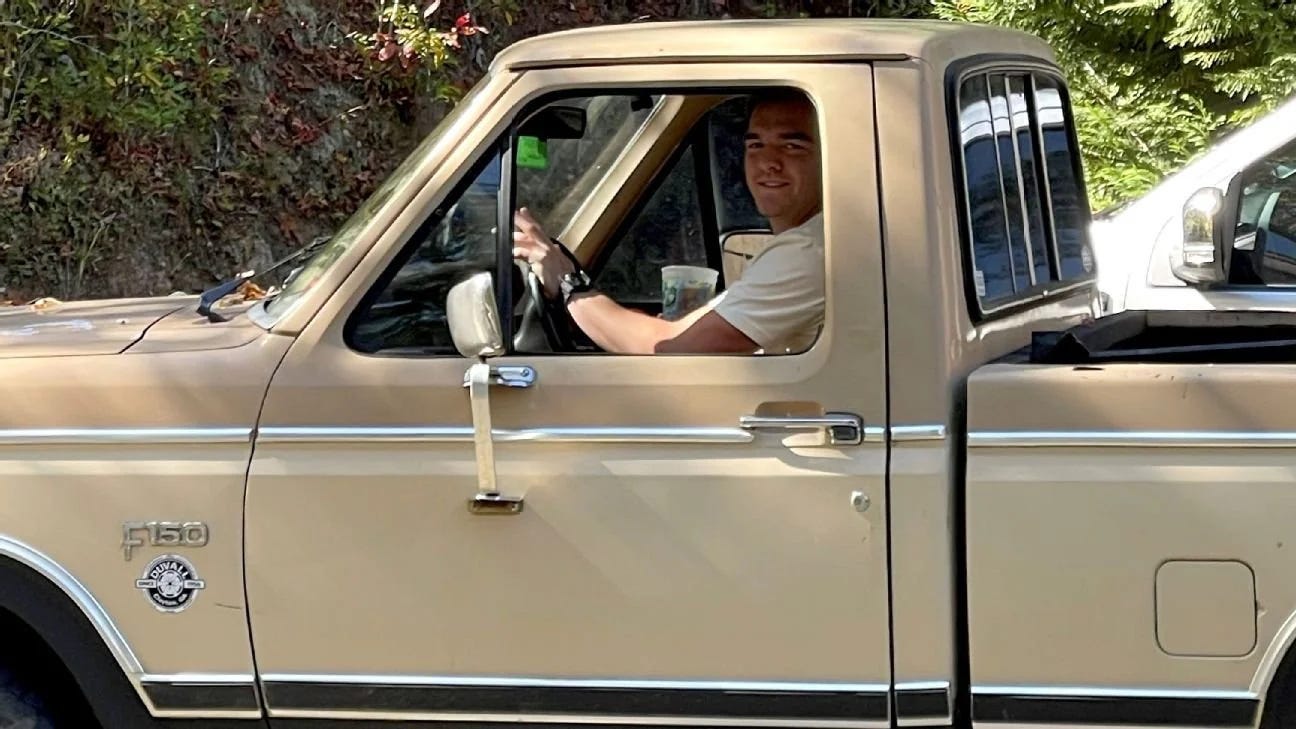
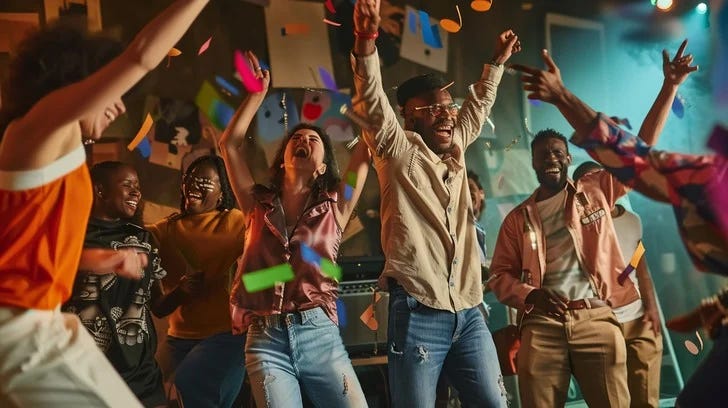
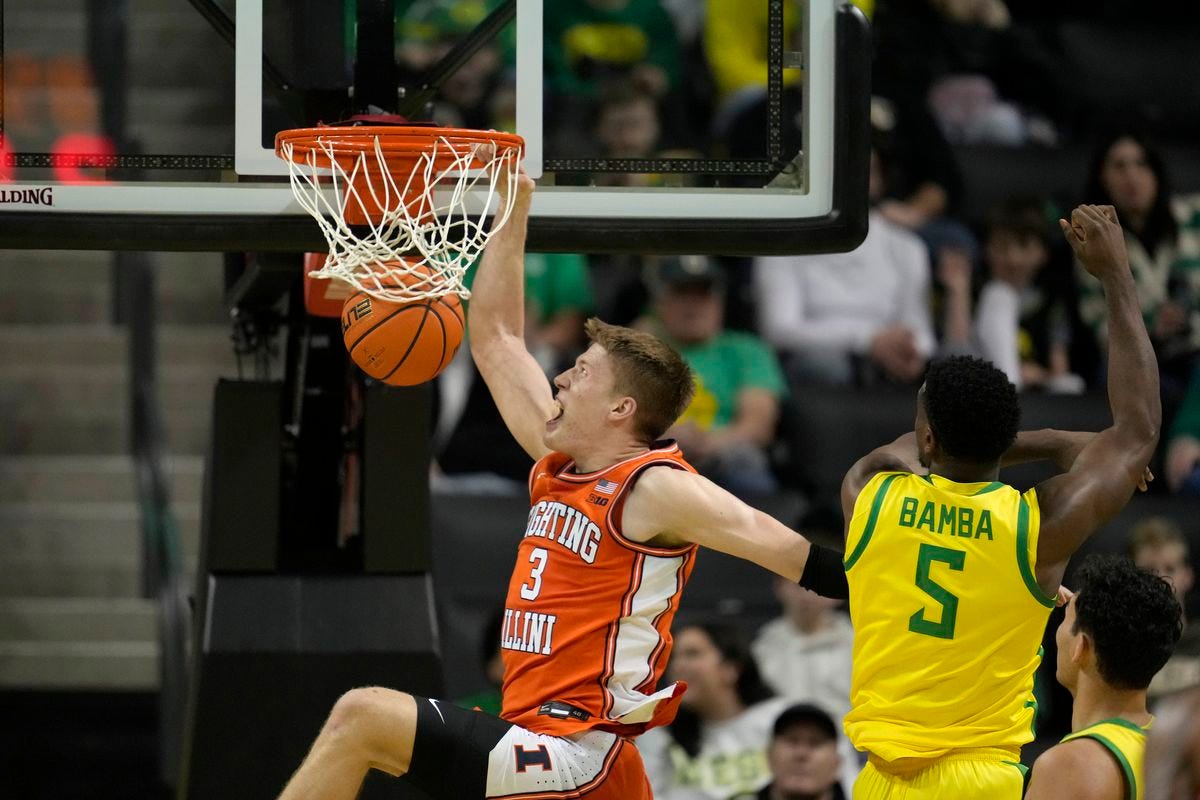
This was the best Will Leitch Newsletter I have ever read, and the saddest one. I got off of social media very quickly Wednesday morning because of all the folks claiming to love America were vilifying fellow Americans.
Will, you missed Charlie "Paw Paw" Maxwell.